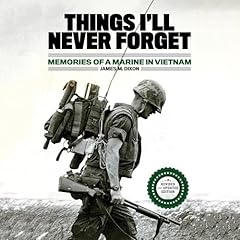
The Field of Blood
The Battle for Aleppo and the Remaking of the Medieval Middle East
No se pudo agregar al carrito
Add to Cart failed.
Error al Agregar a Lista de Deseos.
Error al eliminar de la lista de deseos.
Error al añadir a tu biblioteca
Error al seguir el podcast
Error al dejar de seguir el podcast
 Exclusivo para miembros Prime: ¿Nuevo en Audible? Obtén 2 audiolibros gratis con tu prueba.
Exclusivo para miembros Prime: ¿Nuevo en Audible? Obtén 2 audiolibros gratis con tu prueba.Compra ahora por $17.33
-
Narrado por:
-
Julian Elfer
-
De:
-
Nicholas Morton
In 1119, the people of the Near East came together in an epic clash of horses, swords, sand, and blood that would decide the fate of the city of the Aleppo - and the eastern Crusader states. Fought between tribal Turkish warriors on steppe ponies, Arab foot soldiers, Armenian bowmen, and European knights, the battlefield was the amphitheater into which the people of the Near East poured their full gladiatorial might.
Carrying a piece of the true cross before them, the Frankish army advanced, anticipating a victory that would secure their dominance over the entire region. But the famed Frankish cavalry charge failed them, and the well-arranged battlefield dissolved into a melee. Surrounded by enemy forces, the crusaders suffered a colossal defeat. With their advance in Northern Syria stalled, the momentum of the crusader conquest began to evaporate, and would never be recovered.
©2018 Nicholas Morton (P)2018 TantorLos oyentes también disfrutaron:




















Reseñas de la Crítica
"A riveting account of a battle that changed the course of the Crusades. Nicholas Morton captures the intensity, importance, and aftermath of the confrontation to produce a sparkling history of one of the key turning-points of the Middle Ages." (Peter Frankopan, author of The Silk Roads: A New History of the World)
Las personas que vieron esto también vieron:



First, the narration. Elfer is a narrator that does something I consider to be very difficult. He manages to narrate a book of this subject without imprinting his nature on the book. Many narrators either help or hurt the reading and as such, help or hurt the source material. Elfer does neither and instead reads exactly as if you were reading. Pronunciations are spot on, or at the very least consistent (everyone seems to pronounce Acre differently) while pacing is rhythmic and engaging. This is a narration that deserves praise for being subdued and excellent.
Second, the book. The Field of Blood is deceptively titled. If you search for “The Battle at The Field of Blood” you get a battle in the early 11th century for the city of Aleppo in Northern Syria. This book is actually about a wider narrative and poses an interesting question to readers; could Christian crusaders have actually held their conquered cities in the Middle East for an extensive period of time? While this book does not make an overtly persuasive argument about this, this question is the driving force behind the book as a whole. The book begins with the fall of Jerusalem in 1099, essentially ending the grueling First Crusade. At the turn of the 11th century, Christianity controlled four major centers of power in the Middle East; Jerusalem, Antioch, Tripoli (in Lebanon) and Odessa. They desperately needed to capture one of the four remaining centers of power held by Islam. What happened next?
The Field of Blood expertly lays out the decisions made by the Frankish nobility and its immediate outcome. It also discussed the complex political situations in Syria that led to Franks against Franks and Muslims against Muslims. The strength of this book is in its understanding that the subject matter is as complex as the time period. It was never just “Us vs. Them” as each side fought with religious enemies against former friends. The rise of the Crusader states and their fall; is all detailed here, helping the reader understand a crucial century of history.
The end of the book also deserves some praise. While most history books end with the topic, the author spends the time to tie everything he just discussed with out modern world. Understanding how so many inroads into the Middle East by modern armies turned out the way they did (in the broadest sense) was an unexpected treat. The struggles over community ties, religious fervor, outside influences and wars over the same land that the crusaders faced are expertly explained and juxtaposed with todays on going struggles in the region. The Field of Blood is a wonderful, if not quick take on the 11th century, that is sure to answer the question of what happened immediately after that initial holy pilgrimage that became known as the First Crusade.
A battle that (indirectly) defined the Middle East
Se ha producido un error. Vuelve a intentarlo dentro de unos minutos.
A different view of the Crusades
Se ha producido un error. Vuelve a intentarlo dentro de unos minutos.


